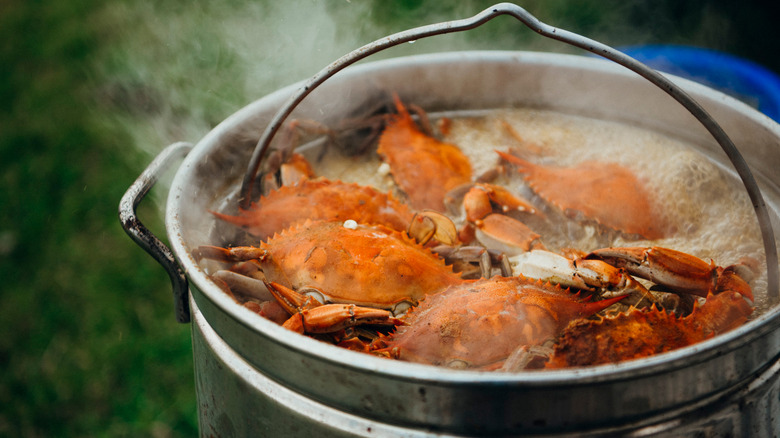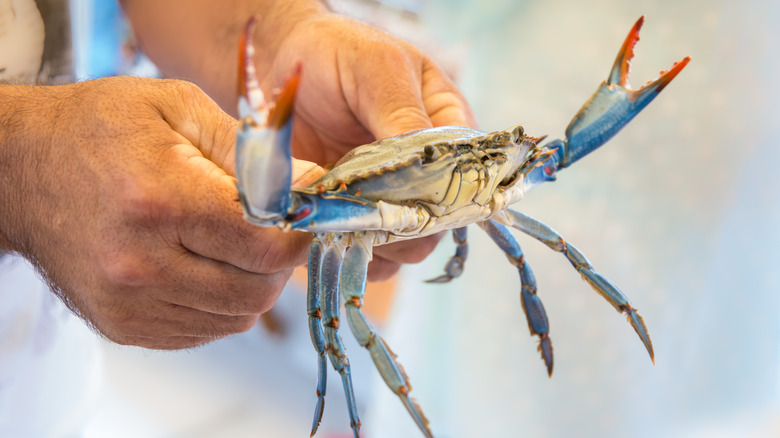You May Want To Think Twice Before You Boil Crab. Here's Why
If you're going to cook crab or lobster, you simply boil it — alive. It's one of the less tasteful and more unsavory sides of the culinary world that many diners have simply grown accustomed to, so much so that it feels commonplace. However, studies are showing that you may want to think twice before you boil your seafood for your next crab boil or lobster dinner.
The main question that many animal welfare activists ask surrounding the ethicality of boiling a crab or lobster is, are these crustaceans sentient? Can they feel and think things? Do they have emotions similar to those of your household dog or cat, or are their inner workings more similar to that of a vegetable? To answer these questions, scientists got to work, conducting studies to determine the degree to which crabs can feel pain.
According to The Wire, researchers used electrodes to shock hermit crabs through their shells. The study found that crabs would vacate their shells to avoid the shocks and even learn to avoid situations and locations where they might receive shocks in the future. The researchers determined that these behaviors were "credible indicators" of crabs' ability to sense and respond to pain. While it didn't necessarily outright prove that crabs are sentient, it did show that there's enough doubt there to make you think twice about boiling your next crab.
What's the most humane way to cook crab?
But this research doesn't mean you should stop cooking and eating crab forever. It just means you should consider killing your crustacean in a way that doesn't include live boiling, which can be a painful experience. The Royal Society for the Prevention of Cruelty to Animals (RSPCA) suggests that a more humane way to kill a crab will include stunning, resulting in the loss of the ability to feel pain (and that loss itself should be either immediate or painless) and then that loss should be sustained up until the crustacean's death.
Stunning can be done through an electric shock in a water bath or via chilling the crustacean at room temperature or in an ice slurry. From there, the RSPCA suggests spiking crabs and splitting lobsters. For crabs specifically, the Cornwall Good Seafood Guide recommends spiking the crab on its underside, which immediately destroys its nerve center.

